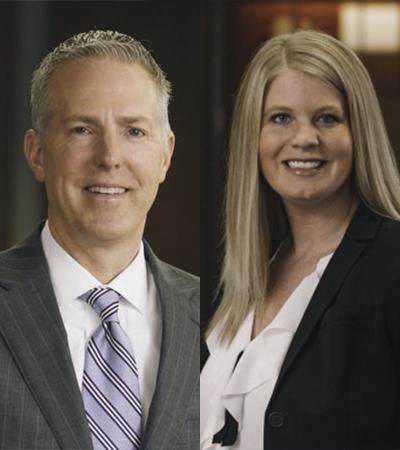
Fahleson, '92, and Paulson, '10, Receive NSBA Award of Appreciation
21 Oct 2020
Mark Fahleson, '92, and Tara Paulson, '10, of Rembolt Ludtke, LLP’s Employment, Labor and Benefits Group were awarded the Nebraska State Bar Association's Award of Appreciation during the 2020 Annual Meeting. The Award of Appreciation is presented to an individual or organization in recognition of outstanding service for creating a better understanding of the legal profession and the administration of justice.
At the outset of the COVID-19 pandemic, as law firms across the state began responding to the pandemic and working to determine their obligations as employers, Fahleson and Paulson made four employment-related webinars available for free to members of the NSBA, providing timely information to lawyers at a crucial moment. Collectively, more than 680 Nebraska lawyers took advantage of those programs and relied on Fahleson and Paulson’s expertise to help guide them through many difficult decisions. Their service to the profession in a time of great uncertainty is deeply appreciated.
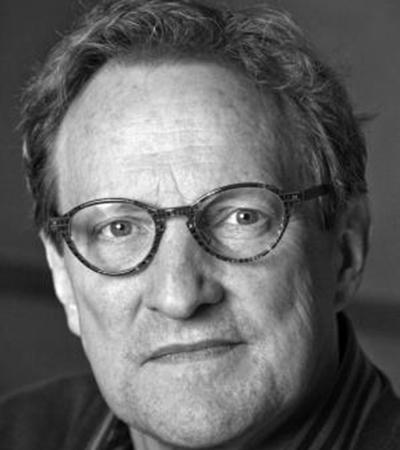
Collins, '71, Receives NSBA George H. Turner Award
21 Oct 2020
Dennis Collins, '71, is the 2020 Geroge H. Turner Award recipient. The George H. Turner Award is presented to a member of the Nebraska State Bar Association who has demonstrated unusual efforts in furthering the public understanding of the legal system, the administration of justice, and confidence in the legal profession. Collins, of Jewell & Collins, is recognized for his exemplary service to the legal profession. Collins is a Fellow in the American College of Trust & Estate Counsel (ACTEC) and active member of the 7th Judicial District Bar Association and the Nebraska State Bar Association. He has spent decades of his legal career sharing his expertise with the legal community by contributing more than 60 law review articles and serving as a CLE speaker at the Nebraska College of Law’s John M. Gradwohl Estate and Business Planning Program for more than 35 years.
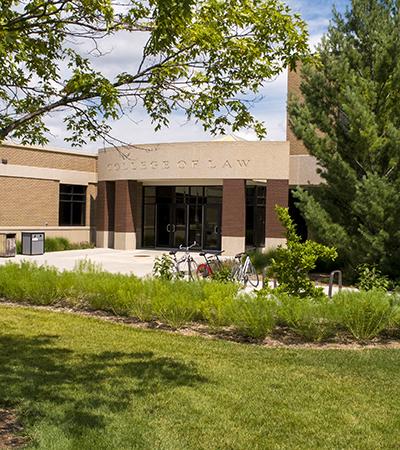
Nebraska Law joins national police practices effort
15 Oct 2020
The University of Nebraska College of Law has joined a number of U.S. law schools and the American Bar Association in the formation of the Legal Education Police Practices Consortium. The group will contribute to the national effort to examine and address legal issues in policing and public safety, including conduct, oversight and the evolving nature of police work.
Organized and housed within the ABA Criminal Justice Section, the consortium will work to advance the widespread adoption of model police practices and initiate other projects designed to support effective policing, promote racial equity in the criminal justice system and eliminate tactics that are racially motivated or have a disparate impact based on race.
Nebraska is one of four Big Ten law schools, and 52 nationwide, participating in the effort.
“Nebraska Law is proud to represent our state as part of such an important initiative,” said Richard Moberly, dean of law. “We strive to develop inclusive leaders — people who will leave the law school and make real changes in our communities. My hope is that while they are here, students will work with the consortium to identify biases and provide opportunities to improve police practices.”
Josephine Potuto, Richard H. Larson Professor of Constitutional Law, will serve as Nebraska’s consortium representative. Potuto is a well-regarded scholar whose work in criminal law, criminal procedure, federal jurisdiction and constitutional law spans more than four decades.
Nebraska Law students will have several opportunities to engage in consortium activities. Potential law student assignments may include:
-
promoting existing ABA policies at the local, state and national levels;
-
developing new policy for potential consideration by the ABA House of Delegates;
-
engaging with police departments and local, state and national leaders on police practices;
-
conducting research to support scholarship related to consortium goals;
-
providing support to public commentary and advocacy (research for op-eds, blogs and articles); and
-
developing model curricula for law schools related to consortium goals.
“Over the next five years, Nebraska Law students will help to reshape police practices in our country and our state,” Moberly said.
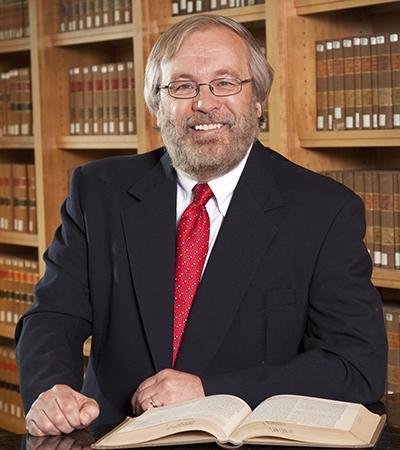
Duncan’s Article Published in Nebraska Law Review
15 Oct 2020
Professor Richard Duncan’s article, Seeing the No-Compelled-Speech Doctrine Clearly though the Lens of Telescope Media, has been published in Martin Gardner memorial issue of the Nebraska Law Review..
Duncan is the Sherman S. Welpton, Jr. Professor of Law and teaches Property and Consitutional Law at Nebraska. He has a strong interest in writing and speaking about federalism, liberty, religious freedom, and the right to life.
The purpose of the Article is to take a close look at what has become the leading case on the right of expressive wedding vendors to resist speech compulsions—the Eighth Circuit’s decision in Telescope Media Group v. Lucero. Duncan briefly describes the Court’s longstanding doctrine protecting persons against compelled speech requirements and takes a careful look at the holding and reasoning of Telescope Media. Duncan suggests that Judge Stras’s majority opinion in Telescope Media is very persuasive and that the arguments against applying the no-compelled-speech doctrine to commercial wedding vendors are not persuasive.
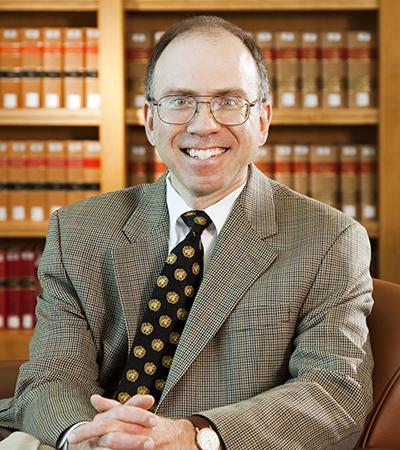
Lepard Publishes Law Review Article in Brazil on Affirmative Action
13 Oct 2020
In the summer of 2020 Professor Brian Lepard published an article on affirmative action and international law in a prominent Brazilian law journal, the Revista Brasileira de Direitos Fundamentais & Justiça (the Brazilian Journal of Fundamental Rights and Justice). The article was published in Portuguese and was the outgrowth of Professor Lepard’s participation in a conference on affirmative action held in August 2019 at the Pontifícia Universidade Católica do Rio Grande do Sul (“PUCRS”), a highly-regarded law school in Porto Alegre, Brazil. The conference brought together many experts on affirmative action from Brazil and around the world. It was led by Dr. Ingo Sarlet of PUCRS, who has won international recognition for his expertise in constitutional law and human rights law.
Professor Lepard’s article is entitled “A Legalidade e a Ética de Medidas Especiais para Proteger Populações Vulneráveis sob o Direito Internacional” (“The Legality and Ethics of Special Measures to Protect Vulnerable Populations under International Law”).
Professor Lepard is the Harold W. Conroy Distinguished Professor of Law at the University of Nebraska College of Law and a globally recognized expert on international human rights law.
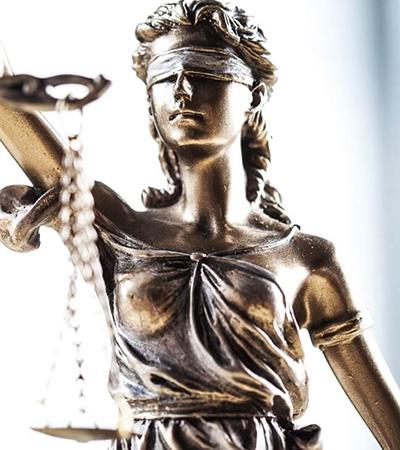
Alumni Honored as Part of Legal Aid Equal Justice Awards
05 Oct 2020
The 2020 Friends of Legal Aid Luncheon on October 8 will focus on those hit hardest by the COVID-19 pandemic. During the event, Equal Justice Awards will be given to community partners, law firms, and attorneys for their work to achieve greater and more equal justice for all, especially for low-wage essential workers during today’s COVID-19 public health crisis.
The Attorney Partner Equal Justice Award will be presented to the Tenant Assistance Project volunteer attorneys.
Legal Aid works collaboratively with the NSBA’s Volunteer Lawyers Project (VLP) and the Nebraska Law Civil Clinic to provide legal services to low income tenants in Lancaster County through the “Tenant Assistance Project” (TAP), a multi-organization effort to provide free legal advice and representation to tenant defendants in Lancaster County Court. The goal of TAP has been to provide legal assistance for every tenant facing eviction proceedings in Lancaster County Court through 2020. Nearly 40 private attorneys, working through the VLP, have volunteered to provide these legal services to tenants.
Attorneys being recognized as part of this award include:
Jamie L. Arango
Terry K. Barber, ’75
Robert F. Bartle, ’76
James A. Cada, ’71
Jonathan S. Camp, ’09
Katherine R. Chadek
David V. Chipman, ’05
Patrick M. Driver, ‘05
Quinn R. Eaton
Christopher L. Eickholt, ’98
Daniel A. Fix, ’95
Eric A. Gerrard
Jennifer Hiatt, ’17
James H. Hoppe, ’78
Brandy R. Johnson
Joy M. Kathurima, ’19
Alex M. Lierz, ’16
Brett T. McArthur
Megan N. Mikolajczyk, ’11
Kala M. Mueller (Nebraska Law Director of Public Interest Programs)
Kasey D. Ogle, ’18
Stephany P. Pleasant, ‘17
Laurie P. Lage, ’09
Sean M. Reagan, ’99
Jon V. Rehm, ’04
Mindy M. Rush Chipman, ’07
Stephen A. Sael
Margaret E. Schiefen
Joy Shiffermiller, ’85
Charles T. Steenson, ’87
Christopher R. Storz
Jennifer L. Sturm, ’18
Ryan P. Sullivan , ’10 (Nebraska Law Clinical Associate Professor of Law)
Audrey R. Svane, ’15
Ryan M. Swaroff, ’08
David P. Thompson
David P. Thompson, ’93
Andrew J. Vinton, ’19
Elaine A. Waggoner, ’78
Brandon M. Warrington
David W. Watermeier, ’82
Two other Equal Justice Awards will be presented at the October 8 celebration:
- Community Partner Equal Justice Award: OneWorld Community Health Center; Charles Drew Health Center; Nebraska Medicine (Omaha); Children of Smithfield (Crete)
- Law Firm Partner Equal Justice Award – Husch Blackwell (Omaha)
More information can be found at www.legalaidofnebraska.org/fola2020.
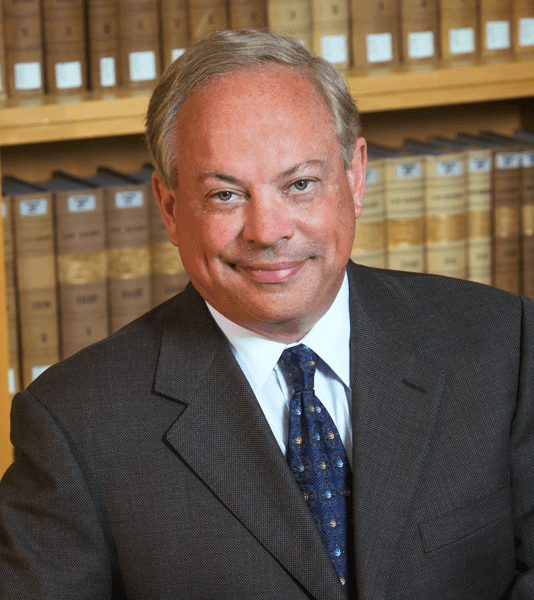
Beard Featured in U.S. Space Command Panel with Rasmussen, '20 LL.M.
02 Oct 2020
Associate Professor Jack Beard was a featured speaker in a panel October 1 with Lt. Cmdr. Mark Rasmussen, '20 LL.M., who is curently working at the United States Space Command.
During the panel, Beard and Rasmussen focused on discussing Zones in Outer Space, which is part of a series of monthly webinar series focusing on legal aspects of military space operations with the Air Force Academy, where Lt. Col. Tim Goines, '16 LL.M., is a professor of law.
These webinars are co-hosted by the United States Space Command Office of the Staff Judge Advocate and the Law, Technology, and Warfare Research Cell at the United States Air Force Academy. The intent is to bring the community of professionals practicing in and around the area of space law together as the United States enters a new era of space operations. This series of webinars will culminate in the First Annual United States Space Command Legal Conference, to be held April 7-9, 2021 at the U.S. Air Force Academy.
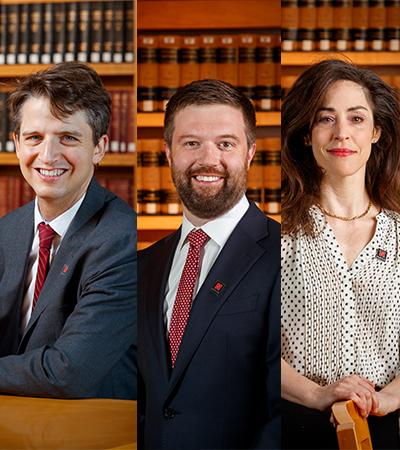
Nebraska Law Welcomes New Faculty
30 Sep 2020
The University of Nebraska College of Law is pleased to welcome three new faculty members. Appointments for Kyle Langvardt, James Fallows Tierney, and Elana Zeide began on August 17, 2020.
Kyle Langvardt will join the College as part of the Nebraska Governance and Technology Center. Langvardt comes to Nebraska Law from the University of Detroit Mercy School of Law, where he taught Contracts, Constitutional Law and First Amendment. Langvardt’s work focuses on the internet’s implications for free expression both as a matter of constitutional doctrine and as a practical reality. His most recent works have appeared in the Georgetown Law Review, Fordham Law Review and the George Mason Law Review.
James F. Tierney joins the faculty with research and teaching interests in securities regulation, corporate finance and the behavioral law and economics of investment advice and securities markets. Prior to joining the faculty, Tierney was senior counsel at the Securities and Exchange Commission’s Office of the General Counsel. In that role, he advised the Commission in resolving administrative appeals of enforcement proceedings and self-regulatory organization action involving all aspects of the federal securities laws, and wrote opinions of the Commission constituting final agency action.
Elana Zeide joins the College as part of the Nebraska Governance and Technology Center. Zeide comes to Nebraska Law from UCLA School of Law where she was a PULSE Fellow in Artificial Intelligence, and Law & Policy. Her work focuses on privacy and how new learning, hiring, and workplace technologies impact education, equality, and access to opportunity. Zeide is an affiliate at Data & Society Research Institute and serves on advisory boards for The Future of Privacy Forum, Macmillan Learning’s Impact Research Advisory Council, and Blackboard’s Taskforce to Develop Framework and Standards for the Ethical and Legal Use of Artificial Intelligence in Higher Education.
“We are pleased to add Kyle, James and Elana to our faculty,” said Dean Richard Moberly. “They come from a variety of backgrounds, and have proven themselves to be wonderful teachers and scholars. I look forward to seeing their positive impact on the College of Law community.”
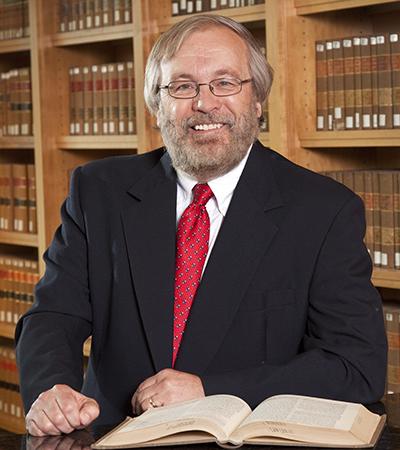
Duncan Discusses Electoral College in Netflix Documentary
29 Sep 2020
Professor Rick Duncan appears in part 3 of the Netflix limited Series Whose Vote Counts, Explained, in which he discusses the Senate and electoral college.
The documentary, produced by Vox, explores the unique systems in the United States that lead people to believe their votes don’t matter. Case studies, data and leading experts help to tell stories that make the issues and the stakes clear. In part 3, experts explore how America’s systems give some voters a lot more power than others.
Duncan’s commentary is based on his 2017 article, Electoral Votes, the Senate, and Article V: How the Architecture of the Constitution Promotes Federalism and Government by Consensus. In the article, and the documentary, Duncan explains that there is no national popular election for President, but rather, there are fifty separate state elections for the Presidential Electors from each state.
Whose Vote Counts, Explained, is available on Netflix beginning September 28, 2020.
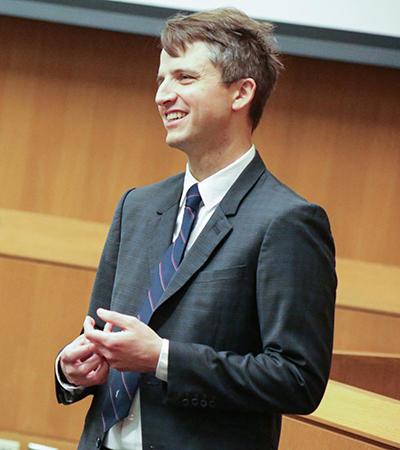
Langvardt Speaks on Chinese Apps, Section 230 and Tech
25 Sep 2020
The Trump administration announced its plans to ban the Chinese apps WeChat and TikTok in the United States, along with expressing support to weaken Section 230 of the Communications Decency Act, which protects tech platforms from lawsuits prompted by user-posted content.
Professor Kyle Langvardt gave his thoughts to Brendan Borderlon at the National Journal regarding the recent announcements, and the implications on the first amendment and tech. Read about it here.
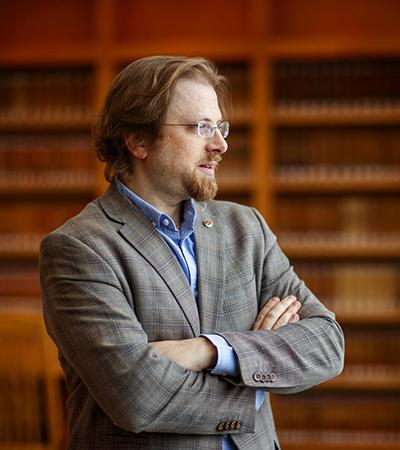
University launches innovative center to study how technology is governed
22 Sep 2020
A new center focused on the changing relationship between law and technology and its effects on society is launching its first initiatives at the University of Nebraska–Lincoln this semester.
The Nebraska Governance and Technology Center, approved by the Board of Regents in February, will give students and faculty opportunities possible at only a handful of universities across the globe. The center will leverage the university’s breadth of expertise and partnerships across multiple disciplines — law, engineering, business and journalism — to allow scholars to investigate questions at the forefront of technology policy.
In August, the center received a significant gift, of $3.5 million over five years, from the Menard family.
In an open letter to the University of Nebraska community, the Menard family said: “A seminal part of the college experience is hearing from people who have a diversity of viewpoints and track record of creating value for others. At Menards, we want to give more students the opportunity to have that experience and to develop a lifelong love of learning as a result.”
The center will take on issues that arise when laws and technology fail to align, according to its founding director, Gus Hurwitz, associate professor of law.
The first endeavor of the center is called “Tech Refactored,” a podcast series focused on the center’s work and the research it will help facilitate. Many of the initial episodes will showcase center-funded work on closing the rural digital divide and technology’s relationship to agriculture. The center is also working on programs this fall that examine highly interconnected economies and the effects of technology on the First Amendment and the media industry.
“The law today has developed over centuries, largely based around slowly evolving technologies that were limited by our understanding of the natural world,” Hurwitz said. “Today’s increasingly programmable technologies can change rapidly and are limited more by human imagination than by the natural world. This changes how we need to think about the law and changes the relationship between the engineers who develop new technologies, the entrepreneurs who commercialize it and the journalists who explain and contextualize it.”
The new center will be housed in the University of Nebraska College of Law, and legal questions will inspire research and other academic programming.
“Lawyers are deeply involved in finding solutions to existing and emerging challenges — including those driven by technological change,” said Richard Moberly, dean of law. “I’m excited that Nebraska will be leading the way with innovative research initiatives across law and other disciplines.”
One of the core ideas behind the center’s mission is that the challenges of technology governance are fundamentally interdisciplinary. The center has established partnerships with the university’s colleges of law, business, engineering, and journalism — sharing faculty and collaborating with students across campuses.
In Hurwitz’s view, it is time to reframe the way emerging technology is studied and encourage interdisciplinary collaboration.
“The impact of new technologies ripples across multiple fields — the traditional, siloed model of study is insufficient to fully grapple with them,” he said.
Preliminary planning for the center started in spring 2020 with a $1.3 million gift from the Charles Koch Foundation.
“Innovation and technology have transformed the way humans live and have expanded opportunities for millions of people,” said Ryan Stowers, Koch Foundation executive director. “We are excited to support the University of Nebraska and its scholars and students as they explore the intersection of law and technology and how that relationship impacts the development of new innovations.”
The Menard family has its roots in the Midwest and a longstanding commitment to seeing the region prosper. John Menard founded his namesake home improvement stores while he still was a student at the University of Wisconsin-Eau Claire. Today, Menards has 325 stores and 41 manufacturing facilities in 14 Midwestern states. In Nebraska alone, Menards has 14 stores and four manufacturing facilities.
Other gifts and grants have been received from the John S. and James L. Knight Foundation, which gave $250,000; Richard Varner, an alumnus of the University of Nebraska, and his family; and others.
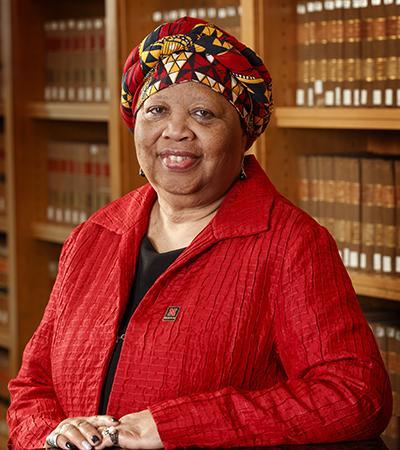
Shavers to Receive Nebraska Bar Association 2020 Diversity Award
22 Sep 2020
During the Nebraska State Bar Association’s Annual Meeting (October 12-16, 2020), the Association will be recognizing members of the legal community for their exemplary service.
The 2020 Diversity Award recipient is Anna Shavers, Associate Dean of Diversity and Inclusion at the University of Nebraska College of Law.
The NSBA Diversity Award recognizes outstanding efforts made by firms, organizations, or individual attorneys in promoting diversity in Nebraska’s legal profession. Dean Shavers was nominated for her contributions to promote diversity and inclusion within the law school and the legal community. In addition to teaching numerous courses related to Social Justice, Gender, Race, and Class and mentoring countless students as faculty advisory to the Multi-Cultural Legal Society and the Black Law Student Association, she has lead the University of Nebraska College of Law’s efforts to promote an inclusive community through sponsoring numerous speakers and faculty workshops on inclusive pedagogy and implicit bias. Dean Shavers also shares her expertise through her leadership, scholarship, and involvement in community, state, national, and international initiatives.
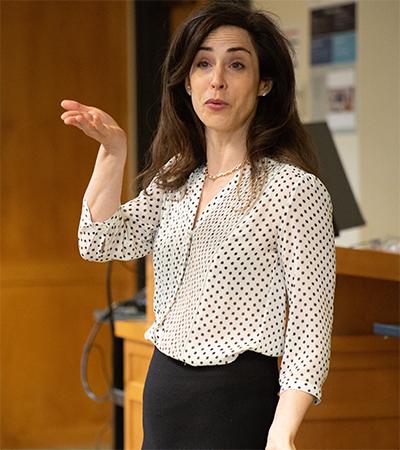
Zeide Interviewed on Educational Technology
18 Sep 2020
On September 2, 2020 Professor Elana Zeide was interviewed by Adam Black of Enabling Insights on data privacy in educational technology (edtech). Existing laws are often onerous to edtech companies. For example, the 2018 General Data Protection Regulation (GDPR) for the EU comprises 99 articles detailing the rights of individuals and obligations of businesses. And, they’re often not fully understood by educators and institutions. Zeide is a forward-looking legal expert in this space and Black, the founder of Enabling Insights, asked her about artifical intelligence and learning analytics in education.
You can read the full interview on the Enabling Insights blog.
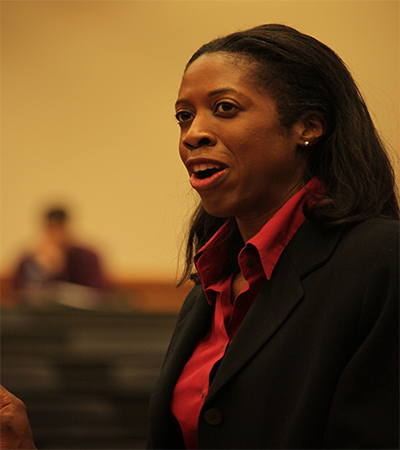
Sheppard Interviewed by Bloomberg Law
15 Sep 2020
Professor Christal Sheppard was featured in two different Bloomberg Law articles offering her insight on the fairness of patent appeals, and raising awareness and increasing visibility of intellectual property law and litigation as an option for Black law students.
On Aug. 6, Sheppard was featured in "Black IP Lawyers Who’ve Made It Look to Grow Ranks Beyond 1.7%" and shared her experience of learning about patent litigation, while finishing up a PhD in molecular biology.
On Sept. 8, Sheppard was interviewed for "Big Bonuses for Patent Appeals Judges Raise Fairness Questions" and gave her opinion on whether PTAB judges are incentivized by bonuses to institute more reviews.
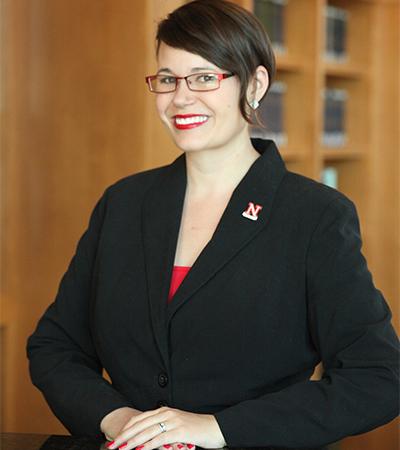
Magilton Joins Air Force Academy’s Eisenhower Center for Space and Defense Studies Journal Editorial Board
14 Sep 2020
Elsbeth Magilton, Executive Director of Technology, Security, and Space Law Initiatives joined the Air Force Academy’s Eisenhower Center for Space and Defense Studies Journal Editorial Board in summer 2020, joining colleagues around the country.
The Eisenhower Center provides cadets and faculty with unique opportunities to participate in research and policy discussions on the future of American security through first-hand contact with senior leaders and experts in the military, civilian government and private sector from the United States and major space-faring nations. Building on this foundation, the Eisenhower Center examines challenges to America’s national security across other frontiers of technology development to include cyber security and developments in hypersonic delivery vehicles.
Through its journal, “Space and Defense,” the Eisenhower Center promotes an ongoing discussion of space and security policy issues from a broad range of professional and intellectual perspectives among academic experts and defense policy makers.
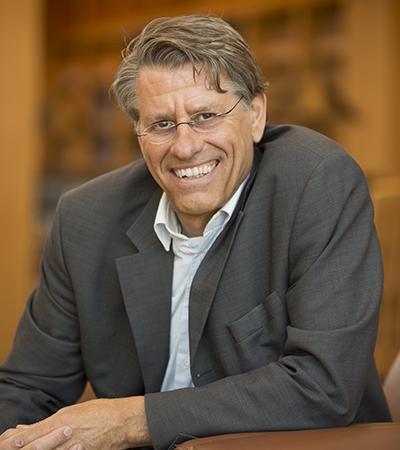
von der Dunk Publishes Advanced Introduction to Space Law
14 Sep 2020
Professor Frans von der Dunk has published Advanced Introduction to Space Law as part of the Elgar Advanced Introductions Series.
In the book, von der dunk presents a nuanced introduction to the topic of space law, explaining the legal rules, rights and obligations applicable to activities in outer space and activities that precede operations in space. The book analyzes the interaction of these elements as well as how international organizations relate to the core tenets of space legislation.
Von der Dunk is the Harvey and Susan Perlman Alumni and Othmer Professor of Space Law. He is a leading authority on space law, having served as advisor to several foreign governments and space agencies, as well as a number of corporations.
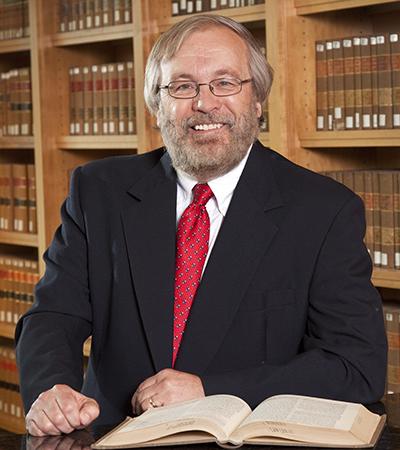
Duncan’s Article Published in Regent University Law Review
13 Sep 2020
Professor Richard Duncan’s article, Defense Against the Dark Arts: Justice Jackson, Justice Kennedy and the No-Compelled-Speech Doctrine, has been published in the Regent University Law Review.
Duncan is the Sherman S. Welpton, Jr. Professor of Law and teaches Property and Consitutional Law at Nebraska. He has a strong interest in writing and speaking about federalism, liberty, religious freedom, and the right to life.
The abstract for Defense Against the Dark Arts: Justice Jackson, Justice Kennedy and the No-Compelled-Speech Doctrine is below:
This Article traces the Supreme Court's First Amendment jurisprudence protecting speaker autonomy and the "right not to speak" from its origins in the flag salute cases to the present. In particular, I focus on two magnificent judicial opinions defending this fundamental free speech right, the majority opinion of Justice Jackson in West Virginia State Board of Education v. Barnette and the concurring opinion of Justice Kennedy in National Institute of Family & Life Advocates v. Becerra (NIFLA). These two eloquent and powerful opinions are true landmarks of liberty and strong shields against an authoritarian government's tyrannical attempts to coerce ideological orthodoxy by compelling individuals to say things they wish not to say. In Justice Kennedy's case, his concurring opinion in NIFLA was issued near the end of his final term on the Supreme Court, and thus it represents an exclamation point on his wonderful legacy of protecting freedom of thought and freedom of speech. Although these opinions are separated by seventy-five years, they share a common understanding of the importance of the First Amendment for the protection of intellectual autonomy from authoritarian officials and compelled ideological conformity.
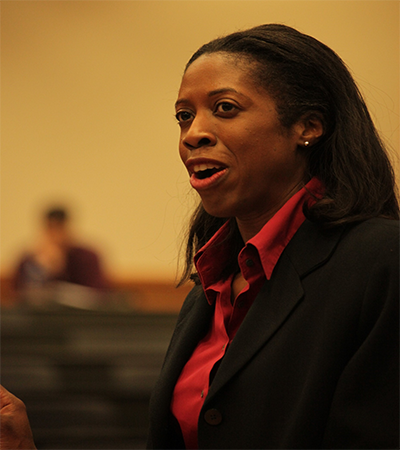
Sheppard Joins Naples Roundtable Amicus Committee, Diversity in Intellectual Property Law Committee
10 Sep 2020
In July 2020, Adjunct Professor Christal Sheppard joined the Naples Roundtable Amicus Committee. The Naples Roundtable, which annually holds the Leahy Institute of Advanced Patent Studies, is engaged in the advanced study of intellectual property law and policy and in fostering the exchange of ideas, viewpoints, and scholarly papers among leading jurists and practitioners in the intellectual property field. The Amicus Committee has authored 16 United States Supreme Court petitions, since 2018, in the field of intellectual property.
Sheppard is also an active participant in the American Intellectual Property Law Association’s Diversity in Intellectual Property Law committee. In July 2020, she was a panelist for the AIPLA’s virtual roundtable, Diversity, Equity and Inclusion: Practical Approaches to Make a Difference, where she led breakout sessions on Stakeholders and Allyship. The objective of the committee is to develop a paper that informs on these complex issues and presents strategies, for government, public and private entities, who are interested in enhancing diversity, equity and inclusion within their organizations.
The Nebraska Governance and Technology Center is very excited to welcome Sheppard given that her work intersects with the work of the Center.
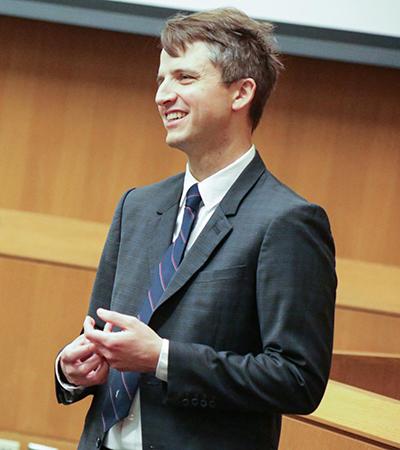
Langvardt Weighs in on "TikTok Ban"
10 Sep 2020
When President Trump threatened to ban TikTok in the U.S., it left many wondering whether his administration could actually ban the app and the consequential first amendment implications.
Professor Kyle Langvardt spoke to Business Insider, and WGN Radio in Chicago about his view on the issue.
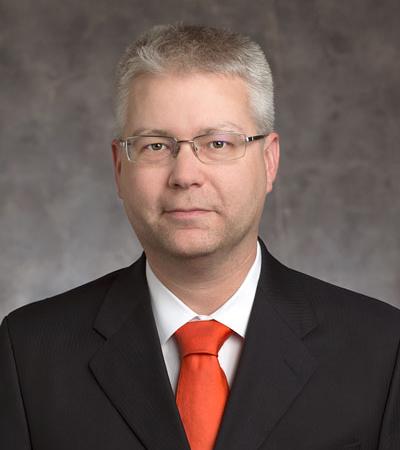
Firestone Publishes Article on Synthetic Biology Regulation
10 Sep 2020
Cyberlaw Professor Justin Firestone published a paper entitled The Need for Soft Law to Regulate Synthetic Biology, which is available on the American Bar Association website.
In his paper, Firestone provides an updated analysis of recent events to encourage renewed efforts to coordinate stronger regulatory schemes and attempts to explain why traditional hard laws, such as international agreements, statutes, or regulations, cannot prevent or mitigate accidental or malicious threats from synthetic biology. A soft law approach—cooperation and collaboration between stakeholders from government, academia, industry, the DIY community, and the public—is suggested as the only viable option. Lastly, synthetic biologists should also collaborate with computer scientists to apply software engineering principles to their work as a way to validate and verify the safety and security of their designs.